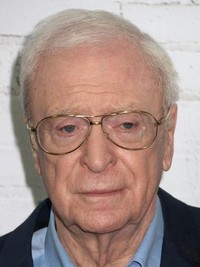Michael Caine

Prolific British film actor Michael Caine rose to fame as an icon of London's swinging '60s, but four decades later, having contributed to some of cinematic history's highest and lowest moments, he was recognized as an international film legend. Caine initially seemed an unlikely movie star, with his glasses and working class cockney accent, but with films like "The Ipcress File" (1965) and "Alfie" (1966), he came to personify the cultural upheaval of 1960s Britain, when the smashing of class barriers finally meant that regular blokes had a shot at the spotlight. With his foundation in repertory theater, Caine had already played hundreds of characters by the time he hit it big, and that background made him one of the most versatile leading actors on film. He deftly transitioned from gritty mobster ("Get Carter"), to scheming soldier ("The Man Who Would Be King"), warm-hearted doctor ("The Cider House Rules"), charming con man ("Dirty Rotten Scoundrels"), erudite professor ("Educating Rita") to transvestite psychologist murderer ("Dressed to Kill"). Caine convincingly inhabited some of the best-known characters in literature and world history - not through self-analysis and method acting, but by holding up a mirror to the audience, presenting them with truths about themselves. His realistic acting style and ability to connect with an audience earned the actor a reputation for being approachable and down-to-earth, despite his ultra-luxury lifestyle and bona fide star status. For Caine, this was no act, as he had risen from the poorest of the poor with all odds seemingly stacked against him.